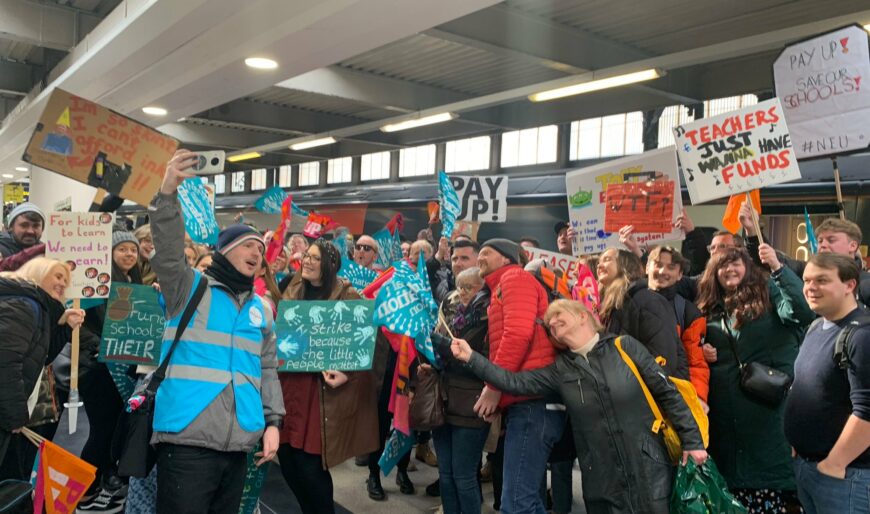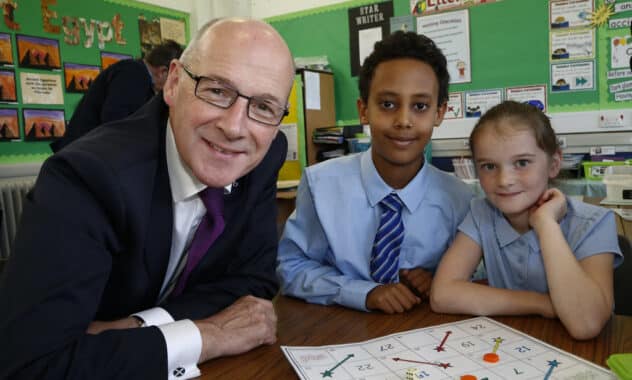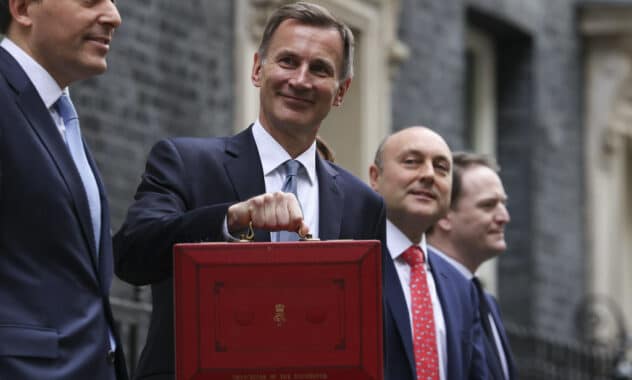Economists’ verdict on the Spring Budget
The Chancellor's Budget fails ordinary people and ignores falling pay

Reaction to the Spring Budget:
On the Open Democracy site, director of the Progressive Economy Forum, James Meadway said:
“Most striking about this budget was what Hunt chose not to mention. The word ‘pay’ barely passed his lips in a lengthy speech – despite tens of thousands of public sector workers outside, and millions on strike across the country today and over the past six months.
An inflation-matching pay rise of 10% across the public sector would cost roughly £18bn on top of offers already made, easily inside the £30bn that the Office for National Statistics says public finances have improved by since November. Yet the government has refused to make a serious offer to most of its own essential workers, condemning millions to more real-term pay cuts over the next year – on top of those of the past decade – as inflation remains way above wages.”
Read the rest of his article here.
Grace Blakely, economics and politics commentator and author, writing in Tribune Magazine, said:
“Astonishingly for a party built by the trade unions, Keir Starmer’s Labour is quite happy to leave workers fighting for wage increases out in the cold if it means he’ll be given a slightly easier ride in his media rounds. And the Tories—the party that single-handedly destroyed the UK labour movement—are unlikely to change their record on this issue any time soon.
In many ways, both parties are still living in a world that has long since died—a world in which distributional conflicts can be suppressed through broad-based economic growth.
This is precisely how the UK’s post-war developmental state dealt with conflicts between capital and labour. Keynesian economic policies were deployed to prop up growth rates, and bosses and workers agreed to come to the negotiating table to ensure that their relative shares of the pie remained broadly constant.
But that world is long since dead. Even if either party had any desire to return to Keynesianism, it is highly unlikely that in a world characterised by slowing productivity, financial instability and climate breakdown, it is even possible to grow our way out of the problem of distribution anymore.”
Read the rest of her article here.
On Left Foot Forward, Prem Sikka, member of the House of Lords and Professor of Accounting at the University of Sheffield, said:
“Instead of addressing the real problems faced by people, Chancellor Jeremy Hunt’s budget has delivered the usual cocktail of austerity, low wages, higher taxes for the masses, and tax cuts for corporations and the rich.
The budget further depletes people’s spending power. Despite the inflation rate (RPI) of 13.4% the annual tax free personal allowance remains frozen at £12,570. There is no change to the thresholds for income tax and national insurance contributions (NIC). Consequently, despite negative real pay growth, millions of people will pay more in income tax and NIC. Someone earning £33,000 would pay an additional £500 in income tax. The government would collect extra £29.3bn. The effect of the stealth taxes is to swell the tax burden to 37.7% of GDP, a post-war high.”
Read the rest of his article here.
Writing on the TUC blog, economist Geoff Tily wrote:
“Today’s budget saw the Chancellor speak about a high-wage and high-skills economy but do nothing to deliver it. The UK is still in the longest pay squeeze for more than 200 years. And our public services are still run-down and understaffed.
There was no plan to get wages rising across the economy. Real wages will not return to 2008 levels until 2026. And the elephant in the room was the lack of funding for our public services and the pay rises needed to recruit and retain nurses, carers and teachers.
The Chancellor should have announced measures to boost secure jobs, pay and skills. He should have provided a fully-funded workforce plan across our public services to recruit and retain key workers. And he should have set out an investment plan to rebuild our services – from fixing school buildings that are falling apart to restoring public health services. Apart from some long overdue steps forward on childcare, workers across the economy will have looked at this Budget and thought ‘was that it?’”
Read the rest of his article here.







